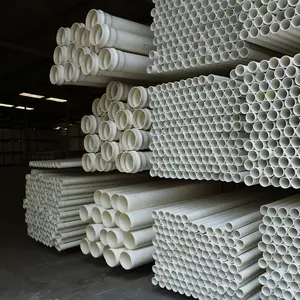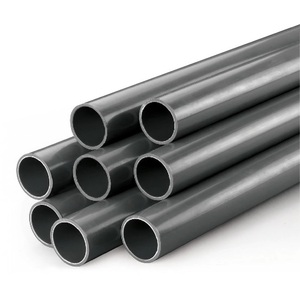(22260 products available)

























































































































































































400mm Steel Pipe:
The 400mm steel pipe is a carbon steel pipe. Thus, it contains carbon, which makes the pipe suitable for high pressure and impact resistance. These pipes are available in different grades. They are suitable for projects where the required pressure is specified. These projects include oil and gas transport, sewerage systems, water treatment, and construction. These pipes are made with different diameters and wall thicknesses to meet the needs of different projects. They can be used as structural pipes in construction projects.
400mm Galvanized Pipe:
These pipes are carbon steel pipes. They are suitable for all the applications listed above. However, they are better suited for applications that require resistance to corrosion. These pipes are galvanized, which means they underwent a process called cathodic protection. During this process, a zinc coating was applied to the pipes. The zinc coating protects the pipes from rust and corrosion. These pipes are used in applications where water transport is needed. They are also used in construction as railings and support structures.
400mm diameter plastic pipe:
These pipes are made with different plastics. For example, they can be made with HDPE, PVC, or UPVC. Unlike steel pipes, these pipes are lighter. They are also cheaper to manufacture and install. These pipes are resistant to corrosion. They can be used to transport water for a long time without being corroded. The most common use of these pipes is in sewerage systems. The smooth inner wall of the pipe ensures that waste is transported without obstruction. They are also used to transport water.
These pipes have a wide range of applications in different industries. Their applications include:
Water Supply:
Water is supplied to homes and buildings through pipes. These pipes carry water from sources like rivers or lakes to treatment plants. From the plants, water is distributed to different areas. 400mm pipes are used in all these stages to transport water efficiently. They ensure clean, treated water is delivered to people.
Sewage and Drainage:
400mm drainage pipe also play an important role in carrying wastewater and sewage. After water is used, it needs to be disposed of properly. These pipes are used in sewage systems to transport wastewater to treatment facilities.
Stormwater Management:
During rain, water runoff needs to be managed. 400mm pipes help carry stormwater runoff to drains and areas where it can be controlled. This prevents flooding and other issues caused by excess rainwater.
Irrigation:
Farmers need water for crops. Irrigation systems use 400mm pipes to transport water to agricultural lands. This helps ensure farms get a steady water supply for plants to grow. The pipes are durable and can carry large volumes of water to different areas.
Industrial Uses:
Many industries also rely on pipes to move liquids around. 400mm pipes are used in factories, plants, and other facilities to transport materials efficiently. They are strong and can handle the demands of moving liquids for industrial processes.
Construction Projects:
During construction, 400mm pipes are often used to carry water to different locations on the building site. They are used in foundations, drainage systems, and other structural elements of buildings. Their size makes them suitable for these applications.
Gas Transportation:
These pipes are also used to transport natural gas or other gaseous materials. The size and strength of the pipe allow for the safe transportation of these products over long distances and through various terrains.
Choosing the right pipe is important for any application. These products are available in different materials, sizes, and specifications. As such, it is crucial to consider certain factors to ensure the right purchase.
Consider the Pipe Application
These 400mm pipes are used in different applications across various industries. Common applications include; water supply, drainage, sewage, electrical conduit, and gas transmission. Each application has unique requirements, which means it is important to choose a pipe specifically designed for the intended application. For instance, the HDPE drainage pipe would be a better option for sewer systems, while steel pipes are ideal for gas transmission.
Consider the Material
The 400mm pipe can be manufactured from different materials. The most common options are HDPE, PVC, and steel. Each material has unique properties and advantages. For instance, steel pipes are very strong and durable. On the other hand, HDPE and PVC pipes are lightweight and easy to handle.
Consider the Size and Pressure Rating
The pipes come in different sizes, and it is important to choose one that fits the intended application. Consider factors such as flow capacity, compatibility with existing infrastructure, and installation space limitations. Additionally, consider the pressure rating. Each pipe is designed to withstand different internal pressures. Choosing a pipe with a suitable pressure rating for the application is important.
Consider the Manufacturer's Standards and Certifications
The pipes are manufactured according to specific standards and certifications. It is important to choose a product from a manufacturer who adheres to the relevant industry standards. This ensures the pipes meet the required quality and performance criteria. Also, choose a pipe manufacturer with a good reputation. Read reviews and testimonials from previous clients to get a better understanding of the manufacturer's product quality and customer service.
Consider the Cost and Availability
The 400mm pipe is available in different materials and sizes, which affects the overall cost. It is important to consider the long-term value instead of the initial cost. This is because a cheaper pipe may be of lower quality and require more maintenance or even replacement. Also, consider the availability of the pipe in the local market. This affects the delivery time and overall project timeline.
Q1: What material is a 400mm pipe?
A1: A 400mm pipe can be made from different materials. The options include PVC, ductile iron, HDPE, and steel. The project requirements will determine the suitable material.
Q2: How long is a 400mm pipe?
A2: A 400mm pipe has different lengths. The lengths are 6m, 12m, and 3m. The most suitable length depends on the application and the site where the pipe is installed.
Q3: What is the pressure of a 400mm pipe?
A3: Different pipes have different pressures. For instance, a 400mm PVC pipe has a pressure of 6.3 bars. A PVC pipe's pressure rating increases with its thickness. A 400mm HDPE pipe has a pressure rating of 5.8 bars. Like PVC pipes, the pressure rating of HDPE pipes also increases with thickness.
Q4: What is the flow rate of a 400mm pipe?
A4: The flow rate of a 400mm pipe at different diameters is as follows: a 400mm PVC pipe has a flow rate of 0.43 cubic meters per second. A 400mm steel pipe has a flow rate of 0.5 cubic meters per second. A 400mm ductile iron pipe has a flow rate of 0.48 cubic meters per second. The flow rate also depends on the material of the pipe.